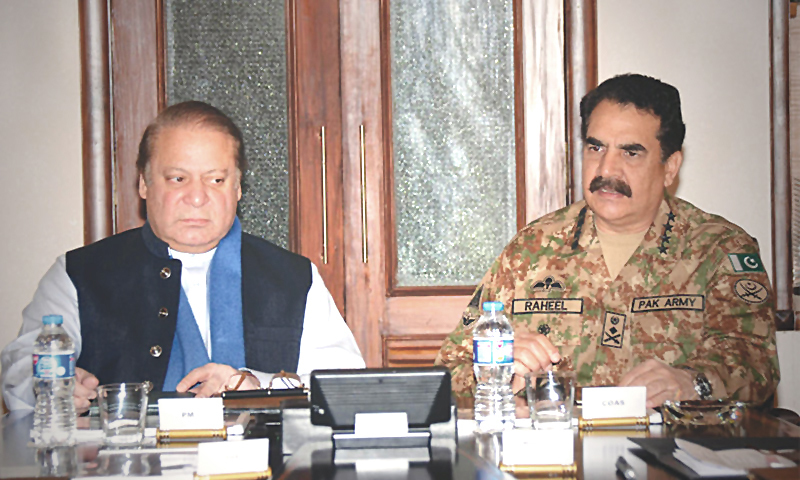 Saudi Arabia’s announcement of a new 34-nation Islamic military alliance was greeted with cheers by many, and confusion by others. For many Muslims, the idea of a grand alliance of Islamic countries was a dream come true, forgetting the sad reality that the Ummah is deeply divided over sectarian and political issues, many of the divisions being made worse by Saudi Arabia, not better. In Islamabad, confusion had once again taken hold as Foreign Secretary Aizaz Chaudhry expressed surprise about the announcement saying the first he heard of Pakistan’s joining the alliance was in the news.
Saudi Arabia’s announcement of a new 34-nation Islamic military alliance was greeted with cheers by many, and confusion by others. For many Muslims, the idea of a grand alliance of Islamic countries was a dream come true, forgetting the sad reality that the Ummah is deeply divided over sectarian and political issues, many of the divisions being made worse by Saudi Arabia, not better. In Islamabad, confusion had once again taken hold as Foreign Secretary Aizaz Chaudhry expressed surprise about the announcement saying the first he heard of Pakistan’s joining the alliance was in the news.
Some wondered if this was another case of GHQ making a decision and forgetting to deliver the script to the civilians on time. Unsurprisingly, it looks like that analysis might be spot on.
Senior officials at the foreign ministry initially expressed surprise at Pakistan being included in the new group, and said that Riyadh had not taken Islamabad on board. But subsequent developments revealed that Saudi Arabia had been given a secret commitment regarding joining the alliance, about which the Foreign Office was not aware.
There were speculations about who had given that assurance.
The military had started in October a new phase in the bilateral defence relationship by training Saudi special forces personnel in countering terrorism. Chief of Army Staff Gen Raheel Sharif visited Saudi Arabia after the special exercises for discussions on counter-terrorism efforts.
Today the Foreign Office has confirmed Pakistan’s commitment to Saudi Arabia’s new military alliance, however explains that officials are still “awaiting further details to decide the extent of its participation in different activities of the alliance”. It was not clarified whether they are awaiting these details from Riyadh or Rawalpindi. For all the confusion, one thing seems clear: Important decisions are appearing to be made outside the constitutional channels. As long as this continues, don’t expect the ‘coup’ question to disappear.
![]()





